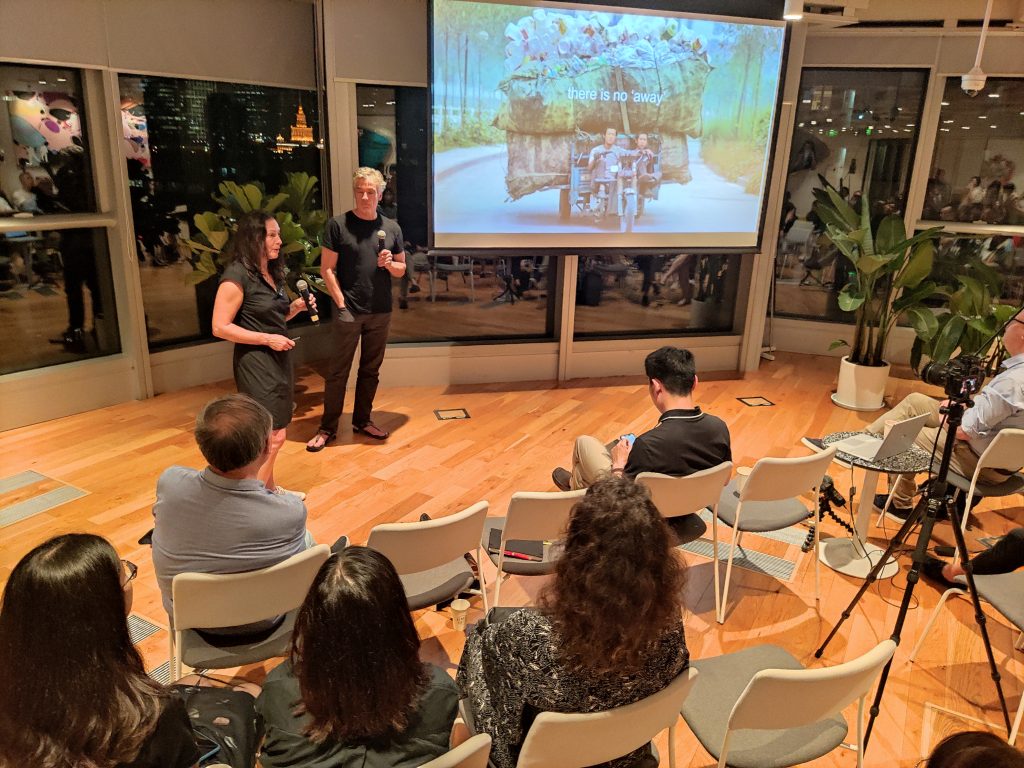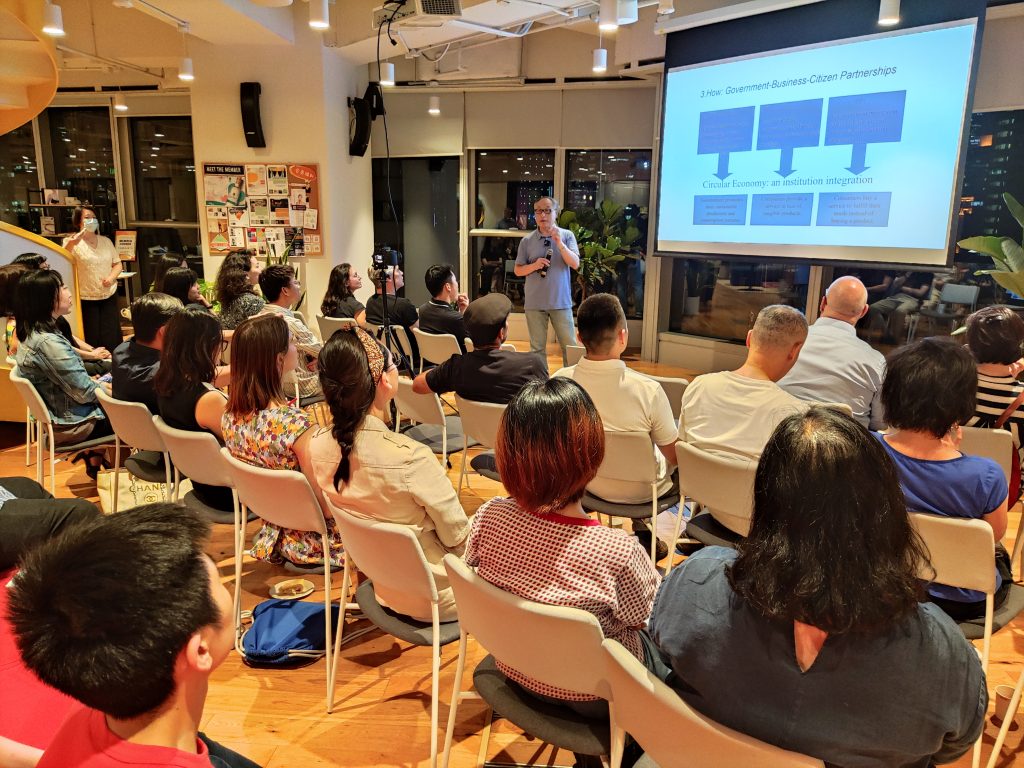Following our previous events in April and May, where we spoke about China’s ambitious carbon goals, this month we launched our first of three events on product and process level sustainability.
Themed as the Circular Economy forum, we invited distinguished Professor Zhu Dajian from Tongji University, Anders Lennartsson, Country Sustainability Manager from IKEA China, William Yao from Alufun Advanced Materials Technology, and Jeff Delkin & Rachel Speth from Bambu to share their insights and experiences in the arena of circular economy and how to close the loop on waste.
Introducing China’s Circular Economy
With extensive knowledge and expertise in sustainability, Professor Zhu kicked off the presentation by introducing the basic theory and practice of circular economy in China.
Regarded as one of China’s leading academics on the topic, Prof Zhu’s core belief is that the only wat to reduce the amount of material consumed is not to continue promoting the three “R”s (Reduce, Reuse, and Recycling), but to shift from models where products are purchased to models where products are shared.
That while the traditional linear economy was focused on substance production, there are three levels where value add can be developed through a circular economy. The first being the cycle of material wastes, the second being the cycle of goods between individuals (e.g. used goods exchange), and the last being the cycle where products are delivered as a service (e.g. bike or tool sharing).
To make the circular economy possible, Prof Zhu’s view is that consumers and citizens need push both the government and the corporation to do the right things, while at the same time adjusting their own mindset from having the need to “own” towards a mindset “sharing”.
Following Professor Zhu’s framework, we then hosted speakers from the business world to share their practical insights and experience into the challenges and opportunities of transitioning into more circular business models.
Transforming Retail
The first to address this was Mr. Lennartsson, Sustainability Director from IKEA, who spoke about the work that IKEA has been doing to transition their business models and products towards a more sustainable, circular, model.
With the goal set to invest into the future and achieve better and healthier life within the boundaries of the planet for 1 billion people, IKEA’s circular commitments includes making all its materials used either renewable or recycled, making 100% circular products by year 2030.
To accomplish this goal, IKEA is making changes within its products and materials to be more circular, while at the same time using their retail sites to engage their customers in a number of behavior changing programs like training to customers on how to better care for their furniture, and learning to make basic modifications and repairs.
While still early in the journey, it is clear that IKEA has already found early ways to both support the circularity of their materials, but has begun engaging their customers to care for their products in a more sustainable way.
Furniture-As-A-Service
Following Anders, startup entrepreneur William Yao spoke about his vision why he is building Alufun, a company whose aluminum furniture will be sold as a service in the commercial space..
Looking to replace the current practices where wood and steel furniture are design for one-time consumption, William’s vision for replacing this practice with sharing has already hit a number of hurdles.
Many of his potential clients do not understanding the leasing process, and in some cases are disincentivized as KPIs are typically built around purchasing. Second, while aluminum is a very versatile product, interior designers are still lacking training and information about how to best incorporate his designs into their spaces.
However, even with the challenges William is still very clear in his vision that the market will change, and that when it does, the opportunities will be massive.

There is No “Away”
Driven by the purpose of reducing the reliance on plastic, Jeff Delkin and Rachel Speth founded Bambu, a household products brand where renewable resources and sustainability are core to their brands.
Beginning their journey more than 15 years ago, they were inspired by their connection to nature to build the company, they were dedicated to build up a business which reflects their personal values and create sustainable products for homes, outdoors and on the go.
In doing this, they have given great consideration to every steps of the supply chain process, and have learned to work with the seasonality of materials like bamboo, hemp, and coconut, while at the same time striving to create safe and equitable working conditions with their suppliers. Some of whom they have worked with from day one!
For this couple, they have shown that, while challenging at times, it is possible to build a company that is aligned with sustainability at the core of the organization.
Wrapping Up:
As always, we sincerely appreciate the insights and experience that speakers contributed, to WeWork and UseDem for their sponsorship, and for the time that participants took to support another fantastic event.
For those who were not able to join us, you can watch the video on our Youtube channel by clicking here:
Upcoming Event Announcement
Following this event, on July 21st we will be hosting a discussion on “SELLING SUSTAINABILITY – Purchase Paths, Price Premiums & Patience”. Click here to learn more.
You can visit our website calendar page to see all our upcoming events. Should you wish to learn more, please send us an email to [email protected].
The Collective

